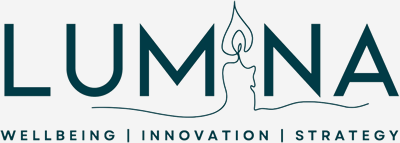Sustaining Our School Leaders
I’ve spent enough time in schools to know that behind every principal’s polished newsletter photo is someone who’s holding a lot, sometimes too much. The 2024 ACU Principal Occupational Health, Safety and Wellbeing Survey didn’t exactly sugar-coat it: school leadership is approaching a breaking point.
Let’s not brush past the numbers: 84% of principals are experiencing chronic stress, 71% are suffering burnout, and half are seriously considering calling it quits. Over half have faced threats or violence at work. These are not just statistics. They’re a collective cry for help. They’re human stories, many of which echo what I’ve heard in coaching conversations, principal networks, and tearful end-of-term reflections.
Principals are expected to fill everyone else’s bucket, supporting staff morale, student outcomes, parent expectations, and system-wide accountability. But what happens when the principal’s own bucket is bone dry? Who cares for the carers?
It’s not the same job it was twenty years ago. One principal recently told me they cried in the car before work three days in a row and still showed up smiling for their staff. The modern principal is juggling a relentless list of responsibilities. They’re making sure NAPLAN and HSC results are up to scratch. They’re navigating teacher shortages and recruiting talent in an empty pool. They’re managing increased enrollment pressure and rising parent expectations. They’re keeping up with compliance, policy shifts, audits, and legal risk. And they’re responding to complex student wellbeing concernsoften without adequate system support.
And still, we expect them to lead with vision. With presence. With a transformational mindset. It’s a heavy lift when there’s no breathing room.
Let’s be honest: the job has become unrelenting. Many principals I speak with describe feeling like they’re “always on,” wearing a dozen hats in a single day mediator, emergency responder, data analyst, cheerleader, and learning leader. The emotional load is immense. The cognitive load, even more.
So where do we go from here? If we want to sustain our school leaders, we need to shift the story from depletion to restoration. From reactive firefighting to proactive care.
This is where the concept of flourishing comes in. Flourishing is not about feeling good all the time. It’s about being well in a full, integrated way mentally, emotionally, socially, and yes, professionally. It’s about having space to reflect, relationships that nourish, and a sense of meaning in what we do.
We can’t afford to keep adding expectations without creating space to reflect, recover, and reset. That’s why one practical support mechanism I’m deeply passionate about is reflective supervision.
Reflective supervision is simple but powerful. It’s a dedicated space for a school leader to pause, process, and be heard without judgement, without urgency, and without having to “fix” anything immediately. It might look like a coaching conversation, a structured peer reflection, or a confidential check-in with someone who understands the landscape.
This time to reflect isn’t a luxury it’s a necessity. When done well, it allows principals to step out of the reactive cycle and back into their core purpose. It reminds them that they are more than their inbox or their latest data set. It reconnects them to what they value and why they started this work in the first place.
We’re at a pivotal moment in education. If we want our schools to be places where teachers and students thrive, we need to start by caring for the people who lead them.
That means listening to our principals when they say they’re at capacity. It means resisting the urge to fix everything through more compliance. And it means embedding opportunities for restoration and reflection not just for students, but for our leaders too.
It’s time to stop asking principals to pour endlessly into others without replenishing their own reserves. Because when a leader’s bucket is fullnot just their calendarthe whole school drinks from it. Because when a leader flourishes, their community feels it.
If you’re nodding along and wondering what small step to take nextstart with connection, reflection, and reclaiming your purpose.
Here are three practical things you can try this week:
Block out 30 minutes for quiet reflection on agenda, just space to breathe and think.
Reach out to a colleague or mentor and have a conversation that’s not about solving problems, but about listening and sharing.
Choose one part of your day to approach with intentional care maybe it’s the way you greet your staff in the morning, or how you wrap up your week.
Small acts of restoration add up. And they send a message: your wellbeing matters too.
If you’re a teacher who’s ready to explore the concept of flourishingfor yourself, your classroom, or your schoolI’d love to invite you to the Wellbeing for Future Focused Schools Conference. I’ll be sharing practical tools, lived insights, and reflections to help you protect your energy, sustain your passion, and create a culture of care in your everyday practice.
Brisbane: 31 July – 1 August 2025 | Brisbane Convention & Exhibition Centre
Melbourne: 28 – 29 August 2025 | Melbourne Convention & Exhibition Centre
Please feel free to send me a message or book me for a coffee on the appI’d love to have a chat with you.
